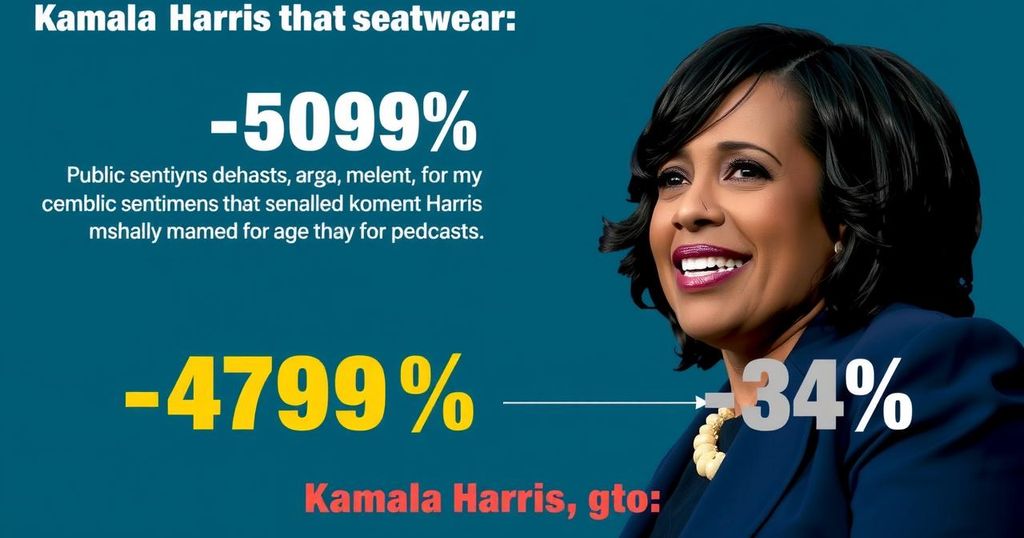World news
ABBAS ALAWIEH, ALA, ALAWIEH, AMERICA, ASIA, BIDEN, CO, CORI BUSH, DONALD TRUMP, ELECTION, GAZA, GAZA STRIP, GEORGE W. BUSH, HARRIS, ISRAEL, JILL STEIN, KAMAL, KAMALA HARRIS, LISTEN, LIZ CHENEY, MICHIGAN, MIDDLE EAST CONFLICT, POLITICS, PRESIDENTIAL ELECTION, PRESIDENTIAL ELECTIONS, TO, TRUMP
Oliver Grayson
0 Comments
Arab American Discontent: The Shift in Political Affiliation Amidst Election Turmoil
Abbas Alawieh and others in Dearborn express dissatisfaction with the Democratic Party’s leadership after Trump’s unexpected electoral success, highlighting a growing divide between Arab American communities and traditional Democratic policies. Many voters feel unheard regarding Palestinian issues, urging a reevaluation of Democratic engagement and representation.
On election night, Abbas Alawieh, a Palestinian-American from Dearborn, expressed no surprise as Donald Trump achieved significant electoral gains in his region. Alawieh, a lifelong Democrat and former chief of staff for Rep. Cori Bush, co-founded Listen to Michigan to advocate for Palestinian concerns and encourage local voters to express their dissent against President Biden’s policies by voting “uncommitted” in the Democratic primary. Their efforts ultimately resulted in mobilizing over 100,000 votes, yet when they sought to address their message to Democratic leadership at the National Convention, they were met with dismissal. The elections witnessed Trump gaining substantial support in heavily Arab-American areas. In Dearborn, Trump garnered 42.5 percent compared to Kamala Harris’s 36 percent, a notable shift given the city’s traditionally Democratic leanings. Alawieh, while unable to support Trump, also felt conflicted about voting for Harris, recognizing that a Harris victory would not necessarily alleviate the plight of his family affected by ongoing conflicts in Gaza. Layla Elabed, who did not cast a vote for Harris, reflected on the disheartening realization that the electoral outcome underscored the limited impact of their anti-war movement on U.S. foreign policy. She criticized the Democratic leadership for ignoring their constituents and claimed that they had numerous opportunities to engage with grassroots activists. James Zogby, an Arab American voting advocate, expressed frustration regarding the Democratic Party’s neglect of key demographic constituencies, assigning blame to a prevailing consultant-driven politics. Even some who leaned Republican, like Rola Makki, felt conflicted about Trump’s victory, recognizing the adverse humanitarian crises occurring in their homelands while still supporting his candidacy. This sentiment of disillusionment and the thirst for a political identity resonated within the Arab American community, reflected in a palpable frustration towards the Democratic Party’s rejection of their grievances and needs. Alawieh noted a complex sentiment of disbelief mingled with curiosity about Trump’s promises to the Palestinian community. Despite the election results serving as a warning to the Democrats, observers like Zogby remain cautious about whether the party will adapt to the changing political landscape. The ongoing pro-Palestinian and anti-war sentiments within the Democratic Party highlight a persistent demand for justice and representation in future elections.
The article examines the shifting political landscape within Arab American communities, particularly in light of Donald Trump’s electoral victories, which signify a growing disconnect between Democratic policies and the needs of these communities. It explores sentiments from Palestinian Americans in Dearborn following the recent elections, emphasizing feelings of betrayal and a lack of representation in the Democratic Party. The emergence of movements like Listen to Michigan showcases the grassroots efforts to advocate for Palestinian rights and express dissatisfaction with U.S. foreign policy toward Israel, illustrating a potential rift in traditional political affiliations among Arab Americans.
The electoral success of Donald Trump in traditionally Democratic strongholds, such as Dearborn, highlights significant dissatisfaction within Arab American communities toward the Democratic leadership’s response to their concerns. The sentiments expressed by individuals like Alawieh and Elabed reflect a yearning for accountability and representation. As this demographic navigates its political identity in the aftermath of the elections, the future involvement of Arab Americans in either party will hinge on how well their grievances are addressed and how both parties adapt to their evolving needs.
Original Source: slate.com




Post Comment